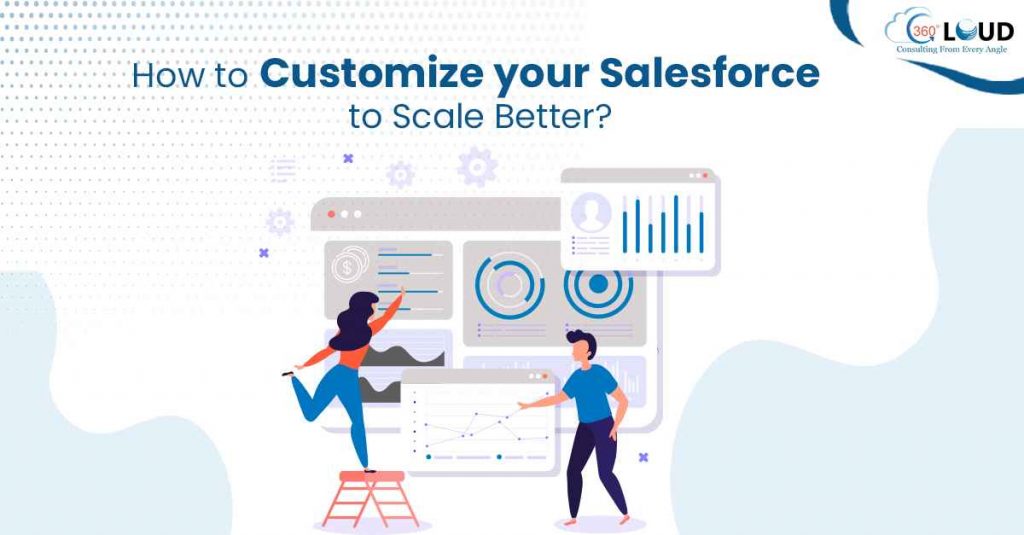Businesses should not close off any doors that can help with the expansion of any kind. Although coming out of the usual process and trying something new might seem risky, but sticking to where you are isn’t going to help you too. The same is with Salesforce. You might be doing alright with the standard Salesforce solution, but you need to look ahead to see how you can customize your Salesforce to scale better and improve the ROI.
How to Customize your Salesforce for Better Output?
Many businesses take their first step with an out-of-the-box Salesforce solution. But as the business continues to grow, it invokes the need for a solution for increased lead tracking and customer support. This is where the need for customizations arises.
Here we have listed some ways you can customize your Salesforce to improve your business and scale better.
1. Einstein and the AppExchange
Different customization options exist within the Salesforce ecosystem. When it is about organizations, there is no “one size fits all” customization approach. However, options companies can avail through AppExchange are growing continuously.
Integration of Einstein can help to facilitate the creation of artificial intelligence-powered applications. These apps can allow teams to work with predictive lead scoring and automate parameter tuning and lead scoring. This will free up your team so they can focus on utilizing the results to drive greater revenue.
2. Custom Settings and Metadata to Customize Salesforce
Apps on Salesforce are data-centric and follow a metadata-driven development model. Every Salesforce application is built around a structured database, which is considered a part of the development process.
This construct makes you can adapt applications to some of your business operations and processes with the help of Custom Metadata Types. When you create a Salesforce app, there will be objects created and set up to influence application flow. The objects that influence application flow are called Metadata Types.
Configuring metadata types can result in a variety of benefits like:
- Easily managing and extending custom rule engines
- Removing post-install data loading
- Eliminating the requirement to use Custom Objects as Metadata Objects
3. Integrating Salesforce with Existing Tools
Salesforce offers different ways to conduct integration with your existing solutions. Developers can use many REST and SOAP APIs to integrate third-party services into their applications. These APIs can be called from any programming language that supports web services.
Integrating Salesforce with other applications you use tears down information silos. It allows the team to make quick decisions based on reporting every needed information from all the applications. Integrating data will streamline reporting and make better-informed decisions, eliminating data entry burdens and reducing chances of errors.
4. Extend Salesforce Services with Heroku
Organizations these days are implementing Heroku to extend the capabilities of Salesforce to match business needs. Companies are mostly going for Heroku for their e-commerce to achieve high-fidelity and highly bespoke e-commerce experiences.
One of the major advantages of leveraging Heroku to extend Salesforce is that Salesforce bulk API calls made by Heroku Connect are free. It means that the bulk API calls do not count against your Salesforce API limit. That’s how organizations are leveraging Heroku Connect to make intelligent decisions about interacting with Salesforce APIs.
Customize your Salesforce and Achieve Increase in Returns
Ignoring the power of Salesforce customization will only limit the future growth of your organization. Keep extending Salesforce capabilities through customization and scale better for growth.
There’s a lot to Salesforce customization that you should know before you consider it for your business. Contact us, and our expert Salesforce consultants will guide you through it.
